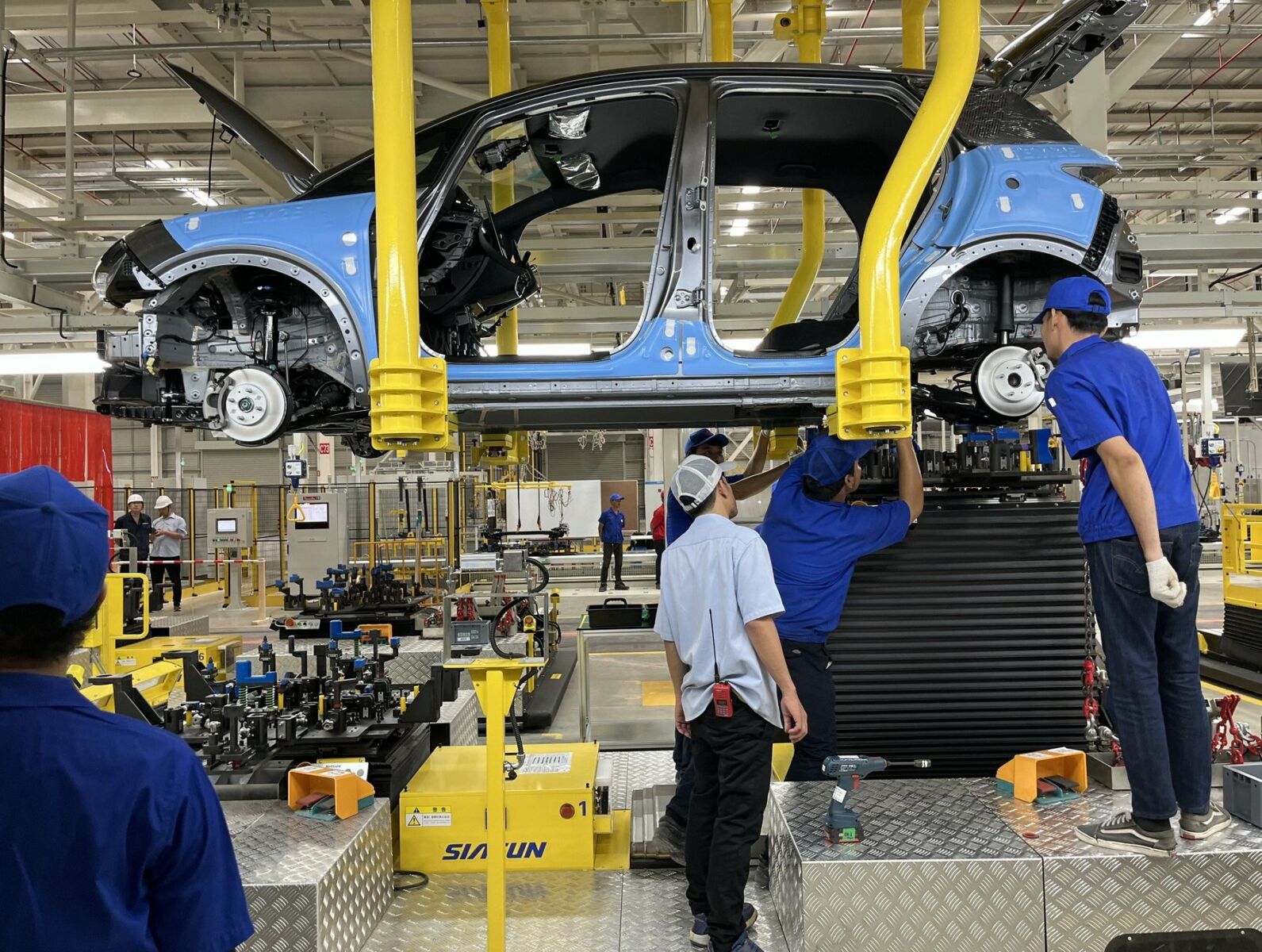Thailand’s EV market hits a speed bump in incentive race (video)

Thailand’s electric vehicle (EV) market is experiencing a jolt as major manufacturers weigh the pros and cons of staying plugged into the nation’s incentive scheme amidst a slowdown.
With the EV sector currently stuck in neutral, the Electric Vehicle Association of Thailand (EVAT) hints that automakers might be on the verge of bypassing subsidies and revisiting their production game plans.
Rolling out in 2022, the EV3.0 scheme aimed to electrify the market with irresistible perks: Think slashed excise taxes, reduced import duties, and tempting subsidies. The catch? Manufacturers were expected to kick off local assembly by 2024 and hit specific government-set production numbers.
It’s the Chinese car giants who are sounding the alarm bells: They’re pressing the Thai government to ease up on the rigid production mandates, questioning whether these measures can truly drive up sales amid current economic headwinds, said EVAT President Suroj Sangsanit.
“Many firms are mulling over ditching the subsidies.
“The car market’s in the doldrums thanks to weak consumer buying power and stringent loan conditions from banks and car finance companies.”
Battery EVs
The EV3.0 offers tantalising subsidies: up to 150,000 baht for electric vehicles under 2 million baht and 18,000 baht for electric motorcycles priced below 150,000 baht.
Yet, participants must stick to a strict 1:1 production rule, creating one locally assembled electric vehicle for each car they bring in. This intensifies to a 1.5 ratio if production starts next year, a prospect that leaves automakers jittery.
October’s figures tell the tale of woe: sales of battery electric vehicles plummeting by 49.7% year-on-year to just 3,717 units, while traditional car sales slipped by 27.8% to 11,562, according to data from the Federation of Thai Industries’ Automotive Industry Club.
The icy market conditions have brands bracing for a potential price war to rev up sales, Suroj explains. However, these cutthroat pricing strategies have often backfired, with would-be buyers holding out for even lower prices, experts warn.
The final call on relaxing EV production requirements lies with the National EV Policy Committee, as highlighted by EVAT. The Federation of Thai Industries is already laying the groundwork to petition the committee for a rethink, hoping to lend a helping hand to struggling EV manufacturers.
Despite the bumps in the road, EVAT forecasts a bright spark in sales, anticipating 82,000 electric vehicles to hit the roads this year, capturing a 14% market share, up from 12% last year, with expectations of rising to 15% next year, reported Bangkok Post
As Thailand’s EV scene navigates this minefield of challenges, only time will tell whether the manufacturers will stay the course or veer off in search of greener pastures.
What Other Media Are Saying
- Bangkok Post reports that the Federation of Thai Industries is urging for relaxed EV manufacturing conditions amidst declining sales, highlighting concerns from Chinese automakers about production targets and market oversupply. (read more)
- Mahanakorn Partners highlights Thailand’s cabinet approving significant EV incentives from 2024 to 2027, promoting local manufacturing with tax cuts and subsidies, aiming for sustainable transport and global competitiveness. (read more)
- Global Fleet highlights Thailand’s EV subsidies causing disruptions in the automotive industry, triggering a price war and production cuts as local manufacturers struggle against Chinese competitors and face significant oversupply challenges. (read more)
Frequently Asked Questions
Here are some common questions asked about this news.
Why might automakers choose to bypass Thailand’s EV incentives despite the benefits?
Market stagnation and strict production requirements might outweigh the financial incentives offered by the scheme.
How could relaxing EV production requirements impact the Thai automotive market?
It might encourage more participation by easing entry barriers, potentially boosting EV sales and local production.
What if Thailand’s EV market doesn’t recover from the current downturn?
Continued stagnation could lead to less innovation, reduced industry growth, and missed environmental targets.
Why are Chinese automakers particularly concerned about Thailand’s EV production mandates?
Stricter mandates could hinder their market strategy, affecting their competitiveness amid a sluggish market.
How might the ongoing price war influence consumer behavior in Thailand’s EV market?
Consumers may delay purchases, anticipating further price cuts, potentially prolonging market stagnation.
Latest Thailand News
Follow The Thaiger on Google News:


























